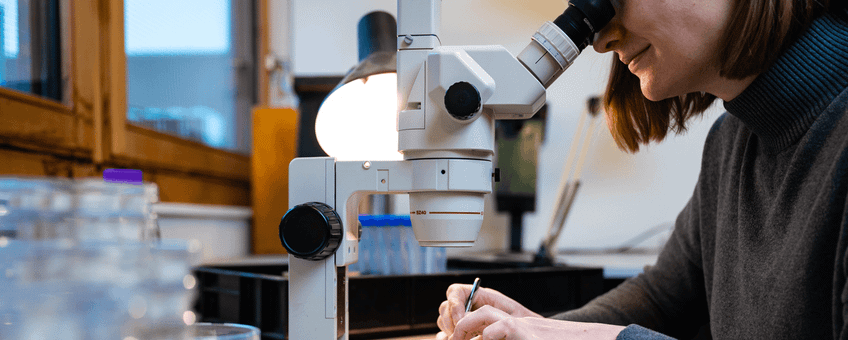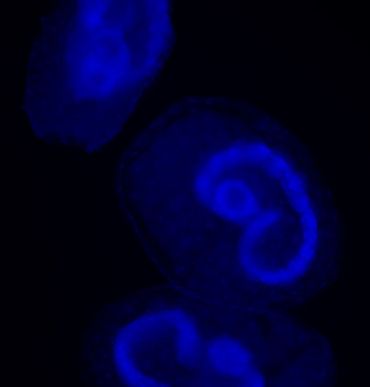
Does north-south adaptation of animals protect against climate change too?
Netherlands Institute of Ecology (NIOO-KNAW)Many species can live in both the cold north and the warm south. These species exhibit genetic differences that help the animals adapt to either the warmer or colder conditions. Van Dis will investigate whether the same genes that cause differences between northern and southern populations are relevant for the adaptation of animal populations to climate change over time as well.
Uniquely long-term
To test this ‘space-for-time’ assumption (difference in location rather than difference in time), she uses unique long-term data from the NIOO on winter moths. “The NIOO has been monitoring winter moth populations in four Dutch forests every year since 1994,” explains Van Dis. The winter moth is one of few species that have been shown to have adapted to climate change. If the assumption is correct, researchers can use the results of this study to determine which populations are most vulnerable to climate change.

Two hundred fortunate ones
Ecologist Natalie van Dis is one of two hundred fortunate people to receive a Veni grant this year. This is a personal scientific grant from the Dutch Research Council (NWO), aimed at researchers who have recently obtained their PhD. They can conduct research of their own choosing and are allocated a maximum of 320,000 euros for this purpose.
Three years
The grant is an incentive for adventurous, talented and pioneering researchers to further develop their own research ideas over the next three years. The topics are very diverse, for example improving the quality of surgery with video analysis or studying the interaction between wind and vegetation to optimise resilient coastal dunes. Another example is identifying the moments when the risk of children being taken into care is greatest within youth protection programmes.
Of nearly 1,400 preliminary applications (with ultimately 469 applications submitted), approximately 15 percent were awarded this year. Natalie van Dis's research is one of 66 successful projects in the domain of Natural Sciences.
What do we already know?
Van Dis previously conducted her PhD research at NIOO and the University of Groningen. She obtained her PhD in 2023 on the rapid adaptation of the winter moth to climate change. In December of that year, she received the Dissertation Award from the Dutch Entomological Society for her research.


Van Dis: “Due to warm winters, the winter moth eggs hatched too early, at a time when the leaf buds on the trees were still closed. As a result, the caterpillars had no food. Under this enormous pressure, the winter moth has genetically adapted over the years. The eggs are now much less temperature-sensitive and hatch when food is actually available. For me, the big question was: how could the winter moth adapt so quickly to climate change?”
The conclusion was that four factors most likely played a role in its rapid evolution:
- The enormous genetic variation among winter moths.
- The high population numbers.
- The premature hatching of the eggs led to a lower success rate for the winter moth population.
- Many genes were involved, which increased the chance of genetic variation. Genes involved in receiving and processing environmental signals probably play a particularly important role.
Inspiration for egg research
In April 2025 NWO also approved an application in the ENW-M Open Competition for a follow-up project based on Van Dis's PhD research. These grants are intended for innovative, high-quality fundamental research and/or research of scientific urgency. Marcel Visser, Head of the Animal Ecology Department at NIOO, is coordinating this follow-up research, together with Maurijn van der Zee from Leiden University’s Institute of Biology. This project looks at insects that, like the winter moth, hibernate as eggs in an increasingly warmer world. These types of insects are struggling, because egg development is highly dependent on the temperature of their environment. The warmer the weather, the faster the eggs develop. The researchers will investigate which genes determine this mechanism. By studying wild populations of twelve insect species, they will determine whether the same genes play a role in different species. They will further investigate whether there is variation in these genes, as this determines their adaptability.
Together, these research projects will provide more clarity on how well insects (and other animals) can adapt to the rapidly changing climate our planet is facing.

Tekst: NIOO-KNAW
Images: NIOO-KNAW; Natalie van Dis, NIOO-KNAW


